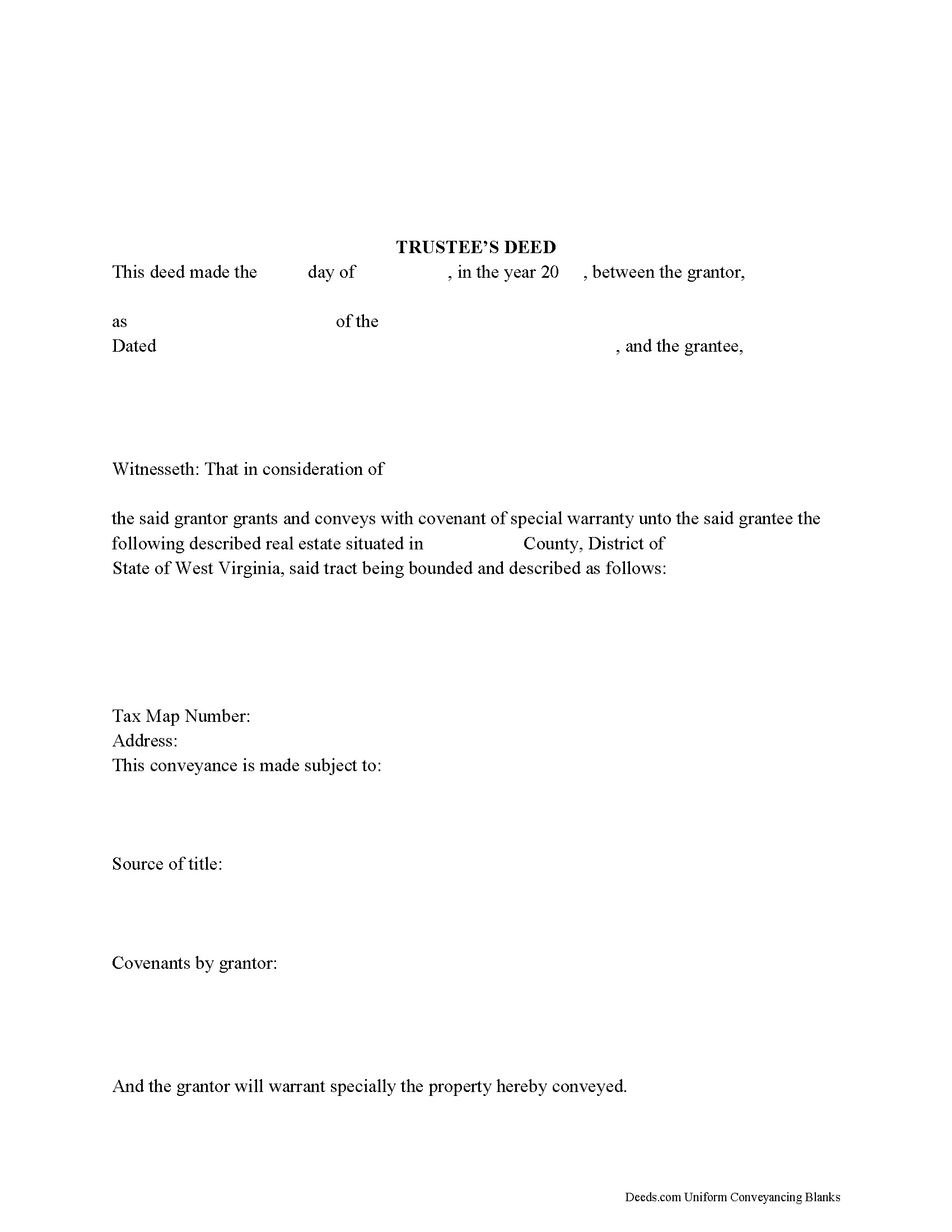Download West Virginia Trustee Deed Legal Forms

West Virginia Trustee Deed Overview

In a living trust arrangement, a settlor transfers property to another person (the trustee) for the benefit of a third (the beneficiary). The settlor establishes the trust by executing a document referred to as the trust instrument and by contributing assets to the trust. The trust instrument, generally unrecorded, contains the settlor's estate plans and dictates how the trust will be administered. In many living trust arrangements, the settlor serves as the trustee during his lifetime, and designates a successor to take over trustee duties upon his death or incapacitation.
When real property is transferred into trust, the settlor executes a deed naming the trustee as the grantee. The trustee then holds legal title to the property as the administrator of the trust. In order to convey the interest in the property from the trust, the trustee executes a trustee's deed.
The trustee's deed takes its name from the role of the executing party. In most states, deeds are differentiated and named after the type of warranty the grantor makes. In West Virginia, however, no distinction is made between different types of deeds (W. Va. Code 36-3-4).
The statutory form for deeds in West Virginia is codified at W. Va. Code 36-3-5. This general statutory deed can then be modified to include covenants (found at 36-4) made by the grantor. The trustee's deed typically includes a special warranty covenant, ensuring that the grantor "will forever warrant and defend" the grantee's title "against the claims and demands of the grantor and all persons claiming by, through, or under him" ( 36-4-3). The more limited warranty is fitting for individuals acting in a representative capacity, as their knowledge of the standing of title is naturally limited to the scope of their office.
A deed executed by the trustee must name the trust and the date of trust in addition to the currently acting trustees (when real property is correctly titled into the trust, the vesting statement includes this information). The deed should meet all requisites of conveyances affecting interest in real property, including the name, address, and vesting information of the grantee, a statement of consideration made for the transfer, a properly formatted legal description of the subject property, and the necessary signatures made in the presence of a notary public. Deeds are recorded in the office of the county clerk wherein the property is situated.
Because the transaction pertains to real property, a memorandum of trust under 36-1-4a may need to be recorded. Consult a lawyer regarding trustee's deeds in West Virginia to address your unique situation.
(West Virginia TD Package includes form, guidelines, and completed example)